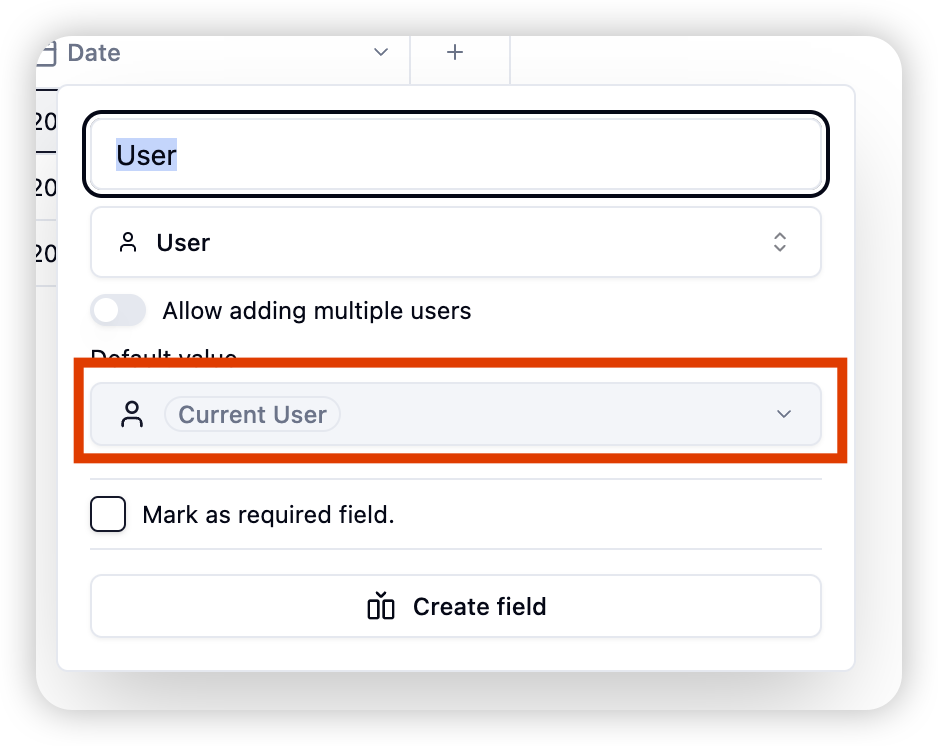User
In undb, the User type field is designed to associate records with users within your system. This field type supports both single-select and multi-select configurations, allowing you to link one or more users to a specific record.
Key Features of User Type
1. Associating Records with Users
- User References: The User field is used to store references to users within your undb environment. This is useful for assigning tasks, tracking ownership, or indicating participants in a process.
2. Single-Select vs. Multi-Select
-
Single-Select: In single-select mode, you can assign a record to a single user. This is ideal for scenarios like task assignment, where each task is owned by one user.
-
Multi-Select: In multi-select mode, you can associate a record with multiple users. This is useful for collaborative projects, teams, or situations where multiple users share responsibility or involvement.
3. Constraints and Default Values
- Required: You can set the User field as required, meaning that a user must be selected before the record can be saved.
- Default User: You can specify a default user or users that will be automatically selected when a new record is created. This is useful for fields where a specific user or group is commonly associated with new records.
- Maximum and Minimum Selections: When using the multi-select configuration, you can set constraints on the minimum and maximum number of users that can be selected.
4. Macro Support

- @me Macro: The User field supports the special
@memacro, which automatically references the currently logged-in user. This is particularly useful for:- Creating filters that show records assigned to the current user
- Setting default values to automatically assign new records to the current user
- Simplifying user selection in forms and views
5. Use Cases
- Task Assignment: Use the User field to assign tasks or responsibilities to individual users.
- Team Collaboration: Link multiple users to a project or record to indicate team involvement or shared responsibility.
- Record Ownership: Track who owns or is responsible for specific records, such as documents, tasks, or customer accounts.
By utilizing the User type field in undb, you can effectively manage associations between records and users, ensuring clarity in roles, responsibilities, and collaboration within your system.